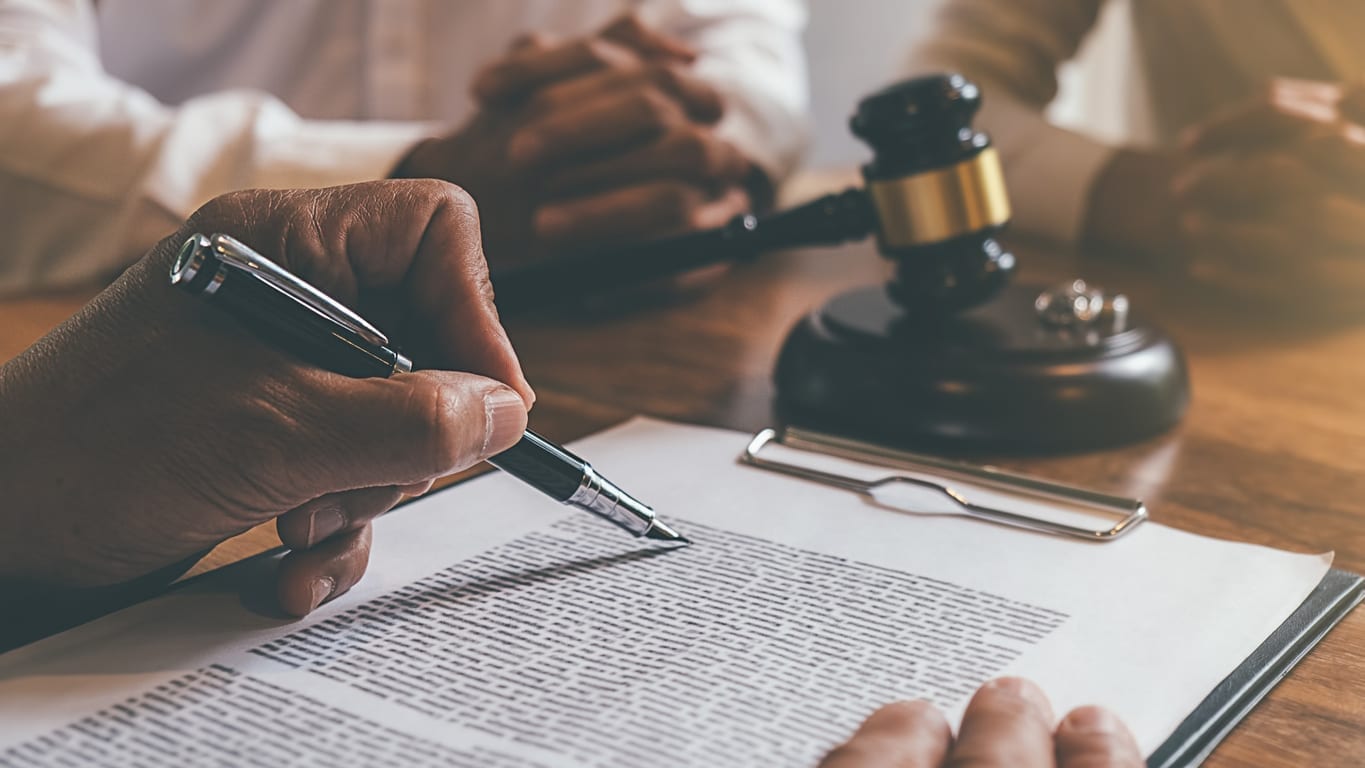The Fourteenth Amendment consists of five sections. In the legal system, Section 1 is the most relevant. It provides the rights to due process and equal protection under the law.
What the Fourteenth Amendment says.
All persons born or naturalized in the United States, and subject to the jurisdiction thereof, are citizens of the United States and of the state wherein they reside. No state shall make or enforce any law which shall abridge the privileges or immunities of citizens of the United States; nor shall any state deprive any person of life, liberty, or property, without due process of law; nor deny to any person within its jurisdiction the equal protection of the laws.

What the Fourteenth Amendment means.
The Fourteenth Amendment stops states from having laws that deny rights to certain people in an unfair way. This means that all citizens have a right to equal protection. The Fourteenth Amendment also stops states from taking away your life, liberty or property without due process. This means that the government must give you a fair opportunity to defend yourself first.
These two protections are only part of the first section of the Fourteenth Amendment. The amendment includes the following parts:
- Privileges and Immunities Clause. All United States citizens have the same general legal protections in all 50 states. There may be some rules that apply differently depending on whether you are a state resident. But governments cannot discriminate against you only because you are an out-of-state resident.
- Due Process of Law. The government cannot take away anyone’s life, liberty or property without due process. This means that government officials must give you a fair legal process.
- Equal Protection. People in the United States have a right to equal treatment. This means that the government cannot treat people in different ways based on things like race. But it also applies to other differences as well. Most recently, its application has been at issue in cases involving same-sex marriage.
How Fourteenth Amendment rights apply to people in prison.
The Fourteenth Amendment applies to everyone, including incarcerated people. But how your Fourteenth Amendment rights look in prison is different than on the outside. For example, your due process rights entitle you to notice of alleged rule violations. They also make sure you can present witnesses and evidence.
Equal protection keeps prison officials from treating prisoners different based on certain characteristics. Examples include prisoners’ race, gender, religious views or other things. However, prison officials do have some discretion on these issues. They can’t discriminate against you based on these characteristics without reason. But they can do so if they have a good enough reason. Because prison safety is important in prisons. Officials may say that is the reason for most decisions. And it can be very hard to prove discrimination in prisons.

What you can do if prison officials violate your Fourteenth Amendment rights.
Prison officials may violate your due process or equal protection rights. If they do, you can file a lawsuit. But it’s hard to win that kind of lawsuit. Imagine that prison officials don’t give you a fair in-prison hearing. This might be a violation. But prison officials can make rules about those hearings, and it’s hard to prove when those rules go too far.
The same is true for your equal protection rights, too. Prison officials might treat you different based on your race, gender or religion. But they may also be able to say they’re doing so for a good enough reason.
Officials may, for example, do something for one religion in prison but not others. This could be because of safety concerns. While this might feel unfair, that might be a good enough reason for the prison to do it.
If you believe that prison officials violated your Fourteenth Amendment rights, you can file a Section 1983 claim or a Bivens claim.
The Takeaway:
You do not lose your Fourteenth Amendment rights when you go to prison. You still have the right to due process, equal protection and more. But those rights can look different in prison. If you believe prison officials have violated those rights, you have the option to file a lawsuit.






